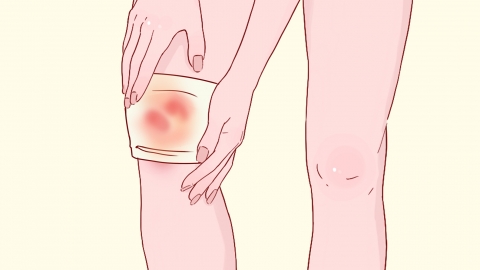摔到膝盖能走路但是弯曲痛是怎么回事
Generally, if a person falls and injures their knee but can still walk, pain during bending may be caused by soft tissue contusion, minor joint effusion, patellar cartilage injury, meniscus damage, or ligament injury. It is recommended to seek medical attention promptly, identify the underlying cause, and receive appropriate treatment under a doctor's guidance. Specific causes are analyzed as follows:

1. Knee soft tissue contusion: When falling, the soft tissues around the knee suffer impact injuries. Pain occurs less during walking because the injured area bears minimal force, whereas bending stretches and compresses the damaged tissue, causing pain. Apply cold compresses within the first 48 hours after injury, switch to warm compresses after 48 hours, avoid strenuous activity, reduce the range of knee flexion, and use elastic bandages for compression wrapping if necessary.
2. Minor joint effusion: The fall stimulates the synovial membrane of the knee joint to produce excess fluid. During walking, the accumulated fluid causes little irritation, but pain arises when the knee bends and pressure increases on the fluid. Reduce knee movement, elevate the leg during rest, and perform gentle flexion-extension exercises under medical guidance to prevent adhesions. If the fluid does not get absorbed over time, consult a doctor to evaluate whether aspiration is needed.
3. Patellar cartilage injury: A fall may cause wear and tear on the patellar cartilage. While walking distributes pressure evenly across the cartilage, bending increases friction and leads to pain. Patients may take medications such as glucosamine hydrochloride capsules, chondroitin sulfate sodium tablets, or sodium hyaluronate injections as prescribed. Avoid activities like squatting or kneeling that increase pressure on the patella; use a patellar brace if necessary.
4. Meniscus injury: A fall may result in a mild meniscal tear. Walking remains unaffected, but pain occurs during bending due to increased stress on the torn area. For mild injuries, bed rest and immobilization with a brace for 2–4 weeks are recommended. Follow medical advice to take medications such as celecoxib capsules, diclofenac sodium sustained-release tablets, or ibuprofen sustained-release capsules. Severe cases may require arthroscopic meniscus repair or partial meniscectomy.
5. Knee ligament injury: A fall may cause minor ligament damage. Walking exerts stable forces that do not trigger significant pain, but bending stretches the injured ligaments and causes discomfort. Mild injuries should be managed with bracing for 3–6 weeks and medications such as etoricoxib tablets, loxoprofen sodium tablets, or eperisone hydrochloride tablets as directed by a physician. Complete ligament rupture requires arthroscopic ligament reconstruction surgery.
In daily life, keep the knee warm, eat more protein- and calcium-rich foods, gradually increase activity levels during recovery, and avoid sudden intense exercise to prevent recurrence of injury.




